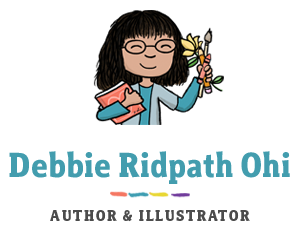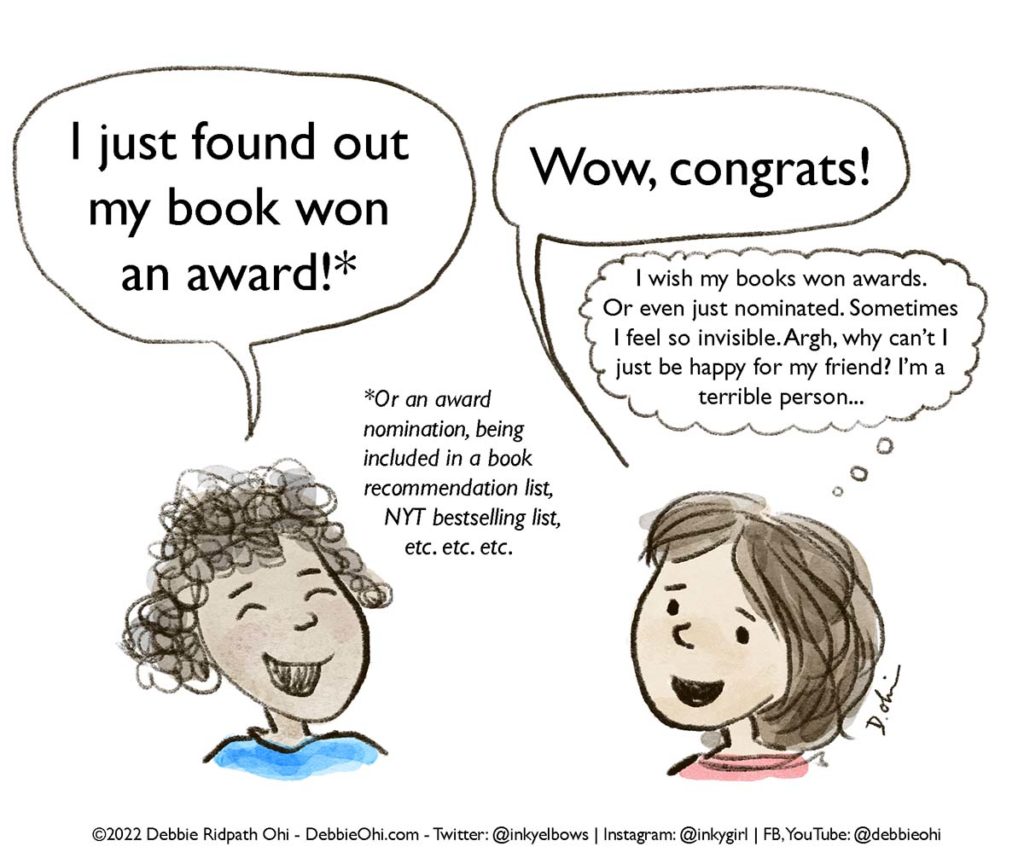When people talk about developing essential skills that will help them become a successful writer or illustrator in the traditional publishing industry, goals usually involve the practical aspects of the craft or business, like how to craft a compelling story or how to find an agent. I believe that learning how to cope with REJECTION is just as important skill when it comes to having a longterm career.
How we handle rejection is just as important as how we handle success.
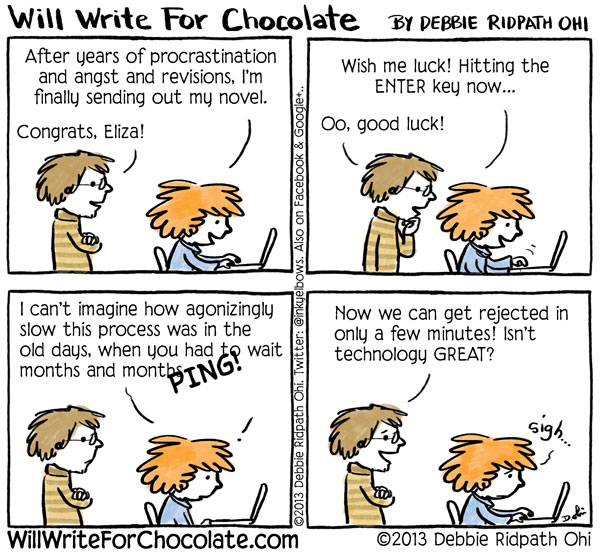
Rejection is part of the business before and after publication. If you haven’t already, do read my post from earlier this year of Rejection Stories and Advice From Published Children’s and YA Creators. Thanks again to all creators who shared.
And while having your book query outright rejected by an agent or editor is an obvious type of rejection in publishing, there are many other types of rejections. Sending out postcards or illustration samples or querying about illustration work and not ever back, for example. Failing to get a grant you’ve applied for. Not being nominated for an award or not getting on a list. Not getting reviewed in the publications you were hoping to boost your book. Or having someone say something negative about you or your book in a review or in social media. Not being invited to a private event you see your colleagues attending. Not receiving the attention or feedback from the industry you feel you deserve. And so on and so on!
Side note: Also see my poll results of How Book Creators Cope With Other Creators’ Success.
But back to coping with rejection…
I won’t go into the need to not give up, take a break if you need to, to persist, because even though that is valuable advice and advice I’m trying to take myself, that’s the point I’m trying to make. The goal of this post is to emphasize the importance of LEARNING HOW TO COPE WITH REJECTION. There is no one right way; you need to find what works for you.
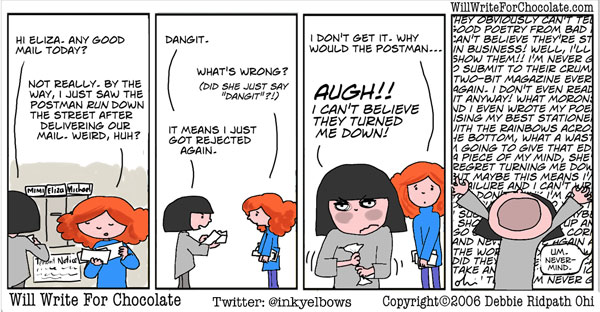
Recently, I came across a great post from psychologist Guy Winch on the Ted Ideas blog titled “Why rejection hurts so much – and what to do about it.” One excellent quote from this article:
“The greatest damage rejection causes is usually self-inflicted.
– Guy Winch
Just when our self-esteem is hurting most,
we go and damage it even further.”
Some of the healthier ways Guy Winch suggests responding to rejection:
Have zero tolerance for self-criticism. “I should probably take the time to revise next time instead of sending out my mss as soon I’ve finished the first draft” is fine, but “I’m a loser!” is not.
Don’t assume a rejection is personal when it’s not. e.g. “My book wasn’t included on that recommendation list because that person doesn’t like me.”
Find ways to boost your feelings of self-worth. Guy suggests making a list of five qualities you have that are important and meaningful, and then choose one of them and write a paragraph about why this quality matters to others, and how you might use this quality in the relevant situation. What helps me: having an inspirational board. This is a cork board I pass by every time I enter my basement studio, and one I tweak constantly. It currently includes notes of congrats or encouragement from family and friends and people I’ve worked with, art and letters from young readers, Paul Zelinsky doodles, printed tweets from Judy Blume while I was working on illustrations for her books, a postcard photo of an especially wonderful group I worked with at Highlights Foundation, and more.
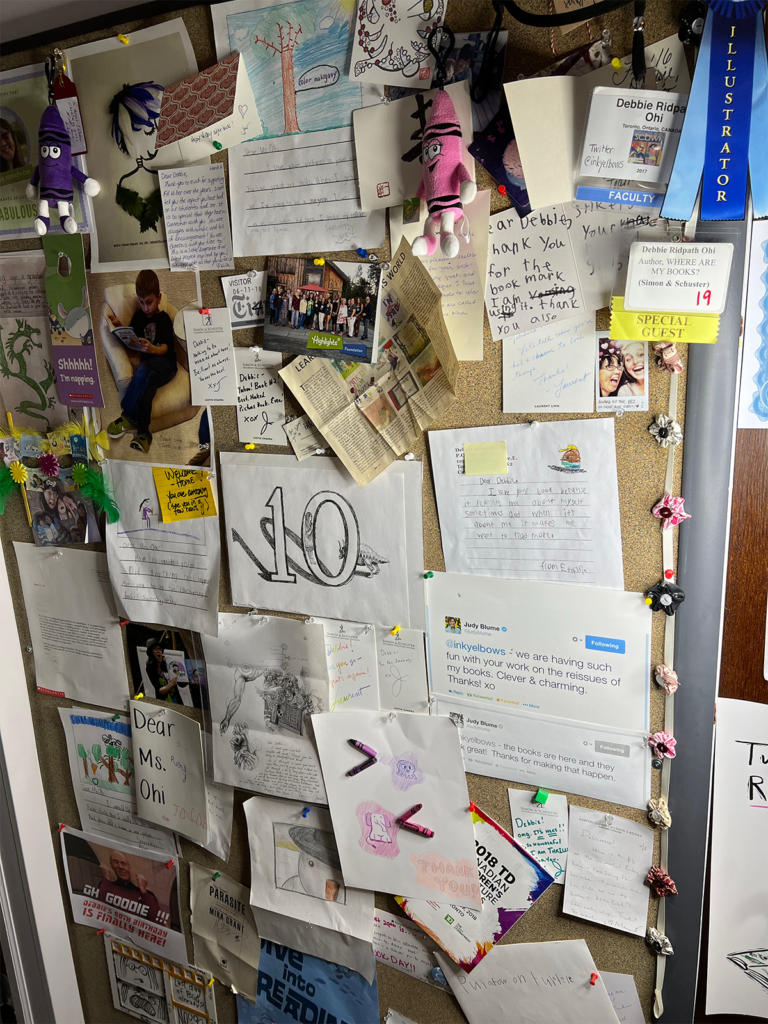
Above: Feel free to read my Instagram post today for more details about some of the items in the above photo.
Find ways to boost feelings of connection. Make plans to get together with friends (work or non-work), in-person or a virtually. If you don’t know others in the industry with whom you can do this, be proactive and work toward making those connections – join the SCBWI and connect with your regional chapter to investigate meet-up possibilities. In Canada, CANSCAIP does not yet have in-person meet-ups, but does have short breakout Zoom rooms after each monthly meeting. But I also do find that sometimes getting together with friends who are NOT in the industry can also be a welcome soul-balm.
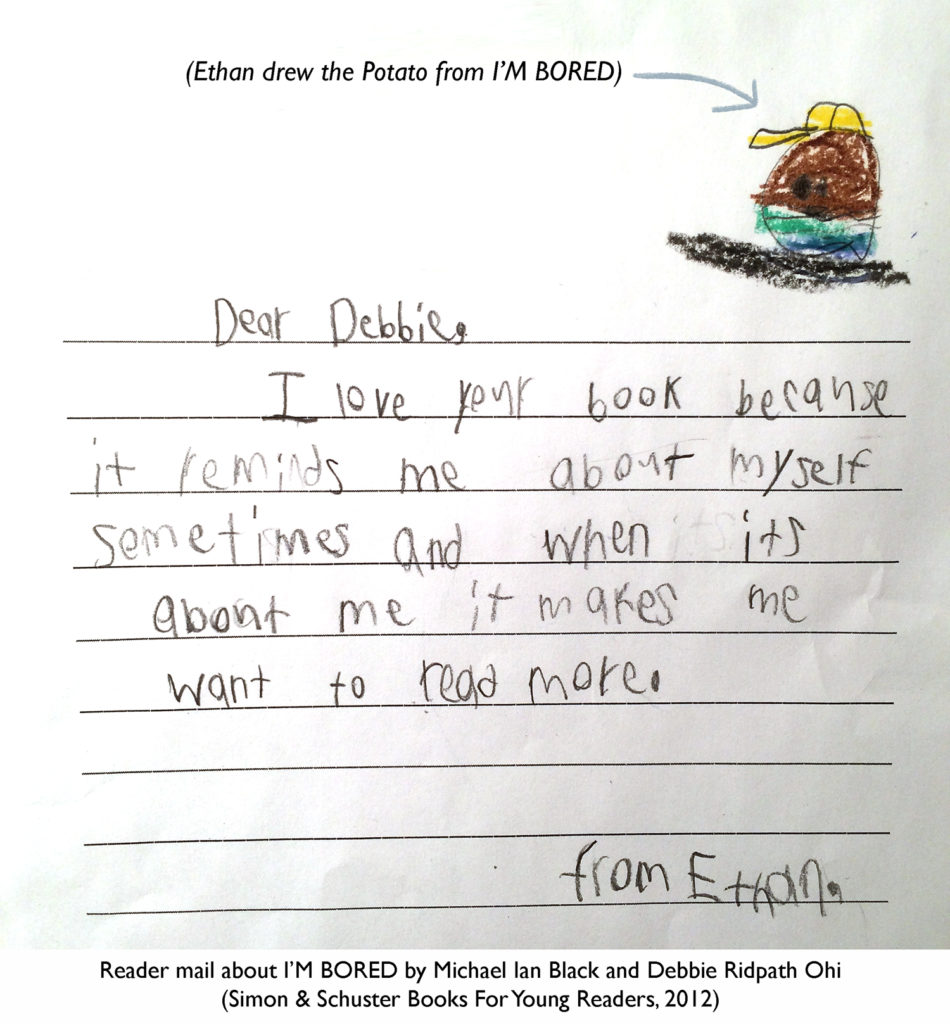
Above: Close-up of one the letters on my Inspiration board. It helps remind me of what’s important, especially when I’m feeling down about rejections or other industry angst.
ONE MORE PIECE OF ADVICE:
Don’t let anyone tell you how you should or shouldn’t be feeling (including me). I post a lot of advice on social media, and most of it is geared toward myself, reminders of what I’ve learned and how much I need to learn.
There is no magic shortcut. You need to do the work, and part of that work is learning how to cope with rejection and your negative emotions in a healthy, non-destructive way. Rejection will always hurt (at least I find it so) BUT working on developing a thicker skin and finding coping methods that work for YOU, is a worthy and ongoing goal that will help safeguard your mental health and ability to create.
Here’s an Elizabeth Gilbert video about “Success, failure and the drive to keep creating” that I love:
How to do YOU cope with rejection? Any tips that might help others? Please feel free to share them below; I’ll leave comments open for a week or two.

